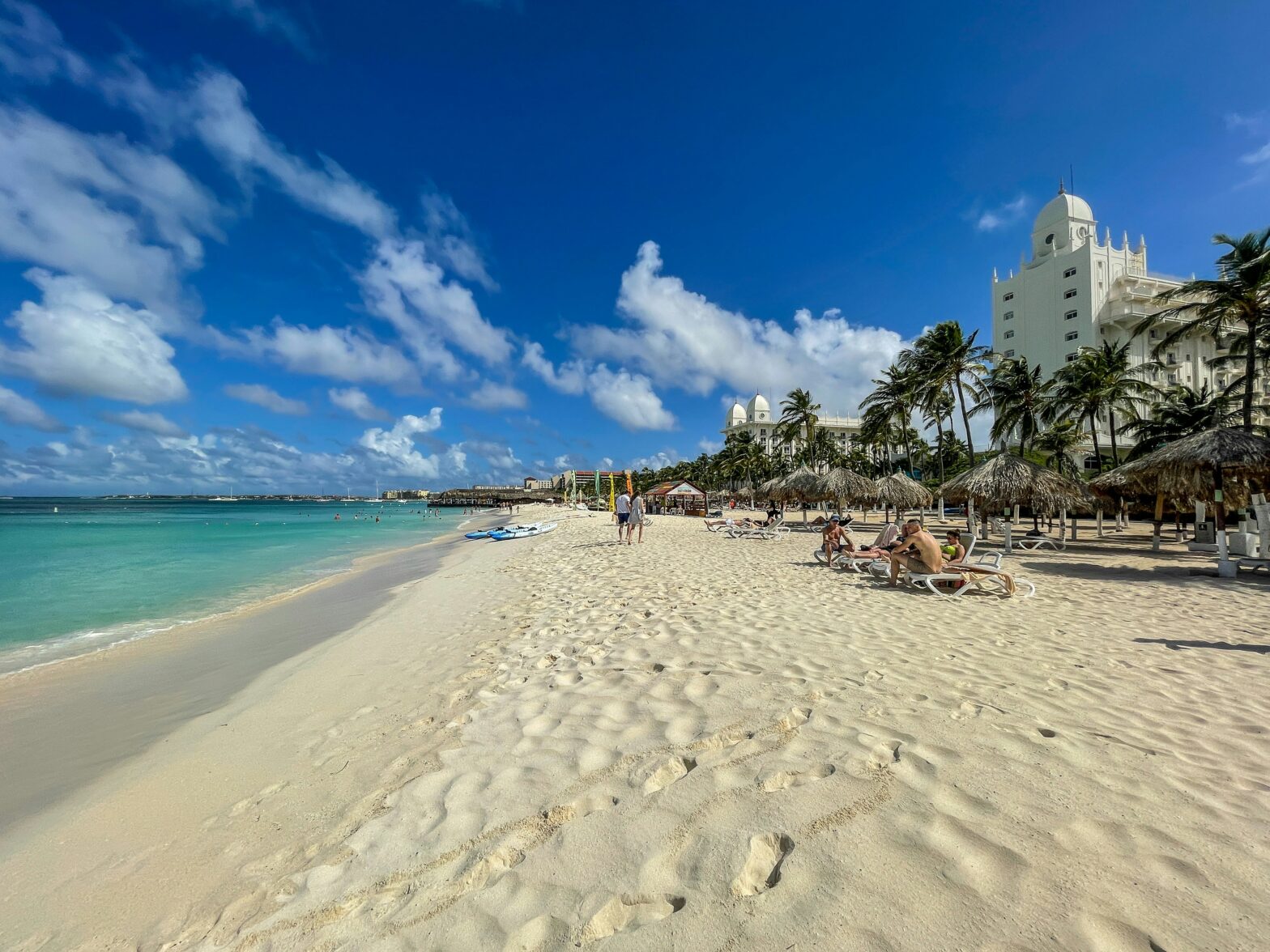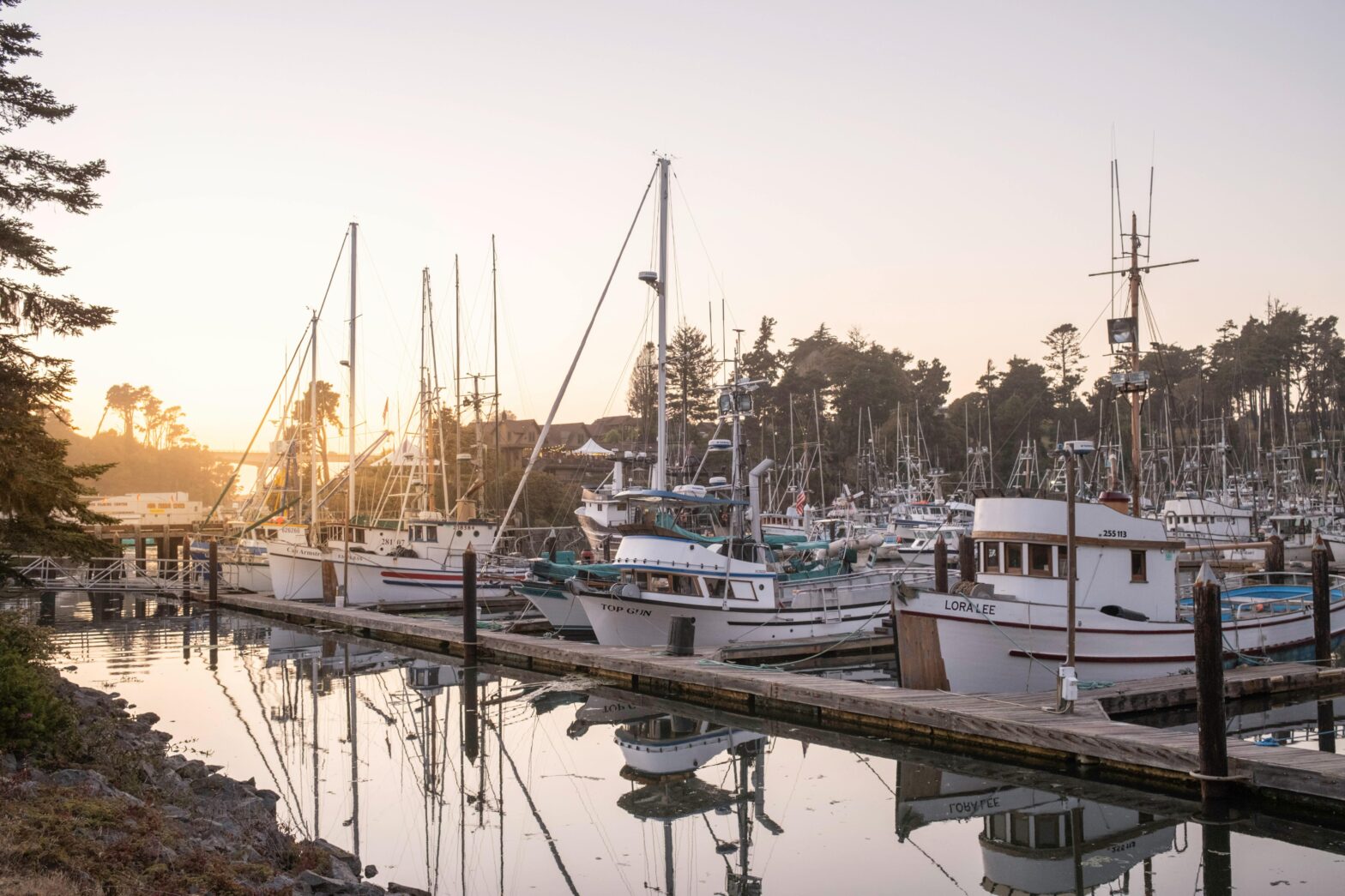Everyone wants to know where and why Black Americans are moving, and one of the reasons is to access better career opportunities. As we’re halfway through Black History Month, Development Counsellors International is shining a light on rising cities for career growth this year.
“Backed by the U.S. Census and notable research reports, we found eight cities that have struck the balance between providing impactful economic opportunities and excellent quality of life for Black Americans”, DCI Account Coordinator of Economic Development, Melissa Dalarossa told Travel Noire.
Here are eight cities Black talent should consider for career growth in 2022, according to DCI.
1. Carolina Core, NC

Blossoming from its manufacturing, textile and tobacco past, the Carolina Core is a humble region in North Carolina where Black Americans can benefit from the multi-billion-dollar transformation it’s undergoing to breathe life into its downtown centers and locals through a surge of developments.
Centrally located between Charlotte and the Raleigh-Durham area, the more than 120-mile region features several mid-sized cities, including Greensboro, Winston Salem, and High Point.
In the Core, entrepreneurs and professionals can access North Carolina’s fast-growing metros, each embracing its own distinct personality offering an affordable place to live with a myriad of lifestyle activities catering to the under 40 community.
This is complemented by the region’s top industries, ranging from aerospace and biomedical to technology and entrepreneurship, plus access to 30+ colleges and universities, including top-ranked HBCUs North Carolina A&T and Winston-Salem State University.
“The region is a breeding ground for collaboration and innovation and offers many resources for Black talent and business owners to leverage,” said Dalarossa.
“Black Americans can be a part of the Carolina Core’s major growth as it becomes North Carolina’s next economic engine, bridging the urban crescent between Charlotte and the Research Triangle at the heart of the state,” she added.
2. Charleston, SC
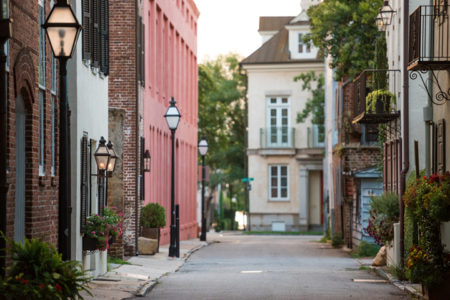
Ranked the #5 U.S. metro for digital nomads by Yelp and Zillow, the #8 millennial magnet by Business Facilities, and the #2 trending destination by TripAdvisor, Charleston stands out for both its career opportunities and its livability assets, including its year-round warm climate, culture, food, beach access, and low cost of living.
Charleston is home to innovative companies in life sciences, aerospace, automotive, infotech, and logistics. The city offers a dynamic startup culture, in addition to career opportunities at multinational corporations like Boeing, Bosch, and Volvo.
In 2021, Boeing started to release workforce demographics data to increase accountability for diversity in hiring. The company plans to increase the representation of Black employees in the U.S. by over 20% in the next five years.
Known for its friendly business climate, Charleston’s commitment to DE&I extends to its progressive VC community. HI Mark Capital, a new venture fund in Charleston, is focused on raising a $15 million fund for Black, brown, and women-owned businesses, ownership groups that are underrepresented in the Southeast.
Herbert Drayton, managing partner, describes the business community as warm, inviting, progressive, and genuine. In Charleston, networking is second nature. Entrepreneurs in industries from medicine to VC have one thing in common: their appreciation for Charleston’s collaborative business community.
Charleston is home to DE&I champions who are moving the community forward.
“The Medical University of South Carolina (MUSC) created a model for DE&I. The Center for Health Disparities Research, established in 2005, is one of the leading centers of its kind. In addition to research, MUSC is focused on the recruitment and retention of diverse talent. It graduates and retains the most Black men in the nation,” said Dalarossa.
3. Cincinnati, OH

Cincinnati offers a strategic location in the Midwest and along the Ohio River, serving as a gateway to the region. With six Fortune 500 companies, including P&G and Kroger, and over $1.5 billion in redevelopment and new construction downtown, Cincinnati is proving to be a well-connected city with strengths in manufacturing, financial services, healthcare, startups, food and beverage, and arts and culture.
This blooming business and creative hub are strengthened by Cincinnati’s diverse population and its innovative DE&I approaches to grow and expand economic opportunities for all.
“Cincinnati was a safe haven for Blacks in search of freedom, and in today’s time, the city continues to serve as a place where Blacks can thrive. Cincinnati is nationally recognized as a top city for startups and minority entrepreneurs, and ranks #1 in the percentage of minority businesses with greater than $500,000 in annual revenues,” said Dalarossa.
She told Travel Noire that new data compiled by the Over-the-Rhine Chamber in 2020 shows the number of Black and minority-owned businesses in OTR has increased by more than 75% over the past three years. The city is home to many helpful resources for entrepreneurial growth, including the Cincinnati Chamber’s Minority Business Accelerator (MBA), a national model for the development of minority-owned businesses.
“The MBA has led to 70 high-growth Black-owned businesses, resulting in the creation of around 3,500 jobs and over $1 billion in revenue,” said Dalarossa.
Other accelerator programs include the Hillman Accelerator, which invests in and mentors female- and minority-owned Midwest startups, and MORTAR, a startup accelerator to help low-income urban entrepreneurs.
As one of the most affordable places to live in the U.S. this year, the Queen City is young and diverse with a vibrant arts scene, tantalizing eateries. and an unmatched love of sports. The city is also strengthening its position in the music scene as the seventh most influential music city in the U.S, with the new Black Music Walk of Fame and the annual Cincinnati Music Festival.
“With everything Cincinnati has to offer, it has been listed as one of the most fun cities in the U.S. and is a great place to grow a career, business, and family.”
4. Colorado Springs, CO

Ranked as one of the Best Places to Live in the U.S. by U.S. News and World Report, and a top 25 city where Black Americans fare best economically from a 2021 poll by Smart Asset, Colorado Springs is seen by many as a top destination to start a career and live an outdoor lifestyle nestled in the beautiful Pikes Peak region near the Rocky Mountains.
WalletHub ranks Colorado Springs as the 29th best place to start a business in a study of the nation’s 100 largest cities. The region attracts talent in top industries like manufacturing, IT and cybersecurity, aerospace and defense, healthcare and medical tech, and sports.
The Colorado Springs Black Business Network, a group designed to create an environment of business, personal, and community empowerment for Black business professionals and business owners, also helping to expand resources for the 28-year-old Colorado Springs Black Chamber of Commerce.
Some popular local Black-owned businesses in Colorado Springs like 3E’s Comedy Club, Four by Brother Luck, The Men’s Xchange, and Beauty Bar are thriving with plenty more local companies to support throughout the city.
A recent study by the University of California at Berkeley found that Colorado Springs is one of two cities in the U.S. to be labeled residentially “integrated” with one out of every four residents now African American or Hispanic.
“Colorado Springs is a diverse city with five military installations bringing in people from around the world, with a rich military history. This legacy makes Colorado Springs so special, not to mention over 300 days of sunshine to enjoy outdoor activities or relax on a patio at a local brewery,” said Dalarossa
5. Jacksonville, FL
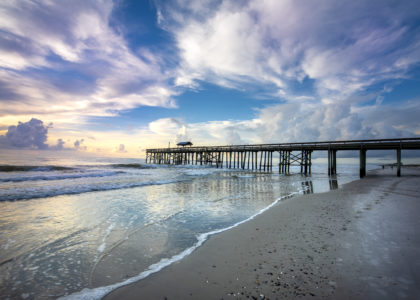
As the city with the highest concentration of African Americans in the state of Florida, Jacksonville has much to offer to its Black community, according to DCI.
“Having welcomed 100,000 new residents in the past decade with 16% accounting for new Black residents, a growth rate above the U.S. average, Jacksonville is one of the fastest-growing cities in the nation, and new construction and development is poised to make the largest contiguous city in the U.S. more attractive than ever before,” said Dalarossa.
She added that the city has a cost of living that sits at 17% below the national average, which made Zillow name Jacksonville the second hottest housing market in 2022. A recent study revealed Jacksonville as the 4th most popular market in the U.S. for investors.
In 2020, the JAX Chamber Foundation established the Lewis & White Business League as a forum and program designed to improve economic opportunity for African Americans in Jacksonville.
“The city has a robust history of Black culture, from the historical African American community of LaVilla — once known as the “Harlem of the South” — to the Edward Waters University, Florida’s first historically Black university. Exploring the extent of the city’s Black history is easy and encouraged through the Black Heritage Trail, which highlights 21 famous historical sites, and through the various murals funded by Jacksonville’s public art program and created by local Black artists to honor the city’s African American heritage.”
The city also celebrates Black Restaurant Week, an annual campaign designed to support Black-owned restaurants.
6. Fargo, ND
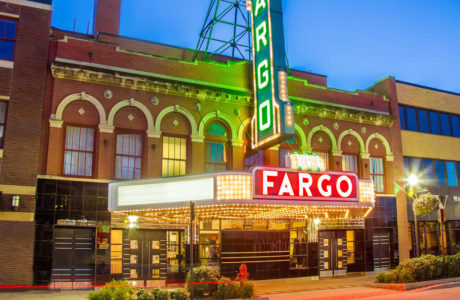
According to DCI, North Dakota continues to attract new residents as the fourth fastest-growing state in the nation. The state’s Black population increased by 239% over the same time period – well above the national average. Cultural celebrations reflect the state’s diversity with North Dakota Powwows and events like the Global Gala and Feast of Nations.
In fact, 17% of North Dakota’s population identified as a race other than white in the latest Census.
Development of North Dakota reports a huge increase in secondary refugees who have moved to the state for employment prospects, schooling, integrated community support, and better public safety.
Fargo’s Black population increased from 2.7% to 8.8% between 2010 and 2020.
Downtown Fargo is nestled along the Red River, which provides a scenic backdrop to the region’s best bars, breweries, and restaurants for Black Americans moving to the area.
“The booming tech hub is growing with diversity and a surprising array of artistic influences, attractions, and activities far beyond what is characteristic for a city its size,” said Dalarossa.
7. Tulsa, OK

There’s a hungry, energized workforce in Tulsa that supports some of the nation’s largest companies in aerospace, energy (three Fortune 500 companies), health care, and technology, according to DCI.
The Tulsa Regional Chamber’s intentional DE&I strategy is to create equitable access to high-paying jobs and education programs while economic development leaders continue to diversify Tulsa’s job opportunities.
“There is an emerging generation of Black entrepreneurs in Tulsa who are working together on the rebirth of Black Wall Street, which was destroyed during the Tulsa Race Massacre of 1921. ACT Tulsa’s six-month accelerator program aims to bolster Black and brown entrepreneurs, and create innovative ecosystems.”
“Black Tech Street, a nonprofit organization, is establishing a Black tech ecosystem to rebuild Black generational wealth in Tulsa and inspire other Black tech communities across the country in the same way that Black Wall Street inspired other communities.”
Tulsa comes together for festivals such as the three-day Tulsa Juneteenth Festival. In Downtown Tulsa, the Greenwood Rising museum and history center is dedicated to Tulsa’s history of Black Wall Street.
8. Rockford, IL
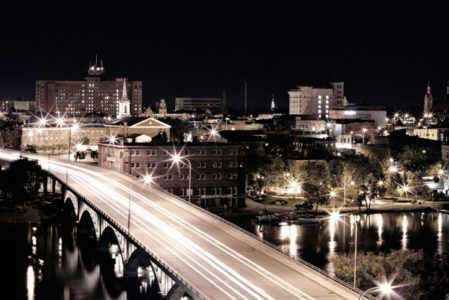
Being Illinois’ fourth-largest metro, Rockford is starting to rise to the occasion with its unique nature attributes and a revitalized downtown, ranking as one of the Cities with the Lowest Cost of Living in America (Niche) and Top 50 Most Diverse Mid-Size Cities (WalletHub).
“Over the last decade, Rockford welcomed more Black Americans with a 9.2% increase, a growth rate above the national average, adding to its population of almost 150,000,” Dalarossa states.
Known as “the Screw Capital of the World,” the Rockford region specializes in fastener manufacturing, earning itself a spot on SmartAssets’ Top Ten Best Places to Work in Manufacturing list.
Specifically, Rockford is globally recognized for its aerospace manufacturing servicing industry leaders including AAR, Boeing, and Airbus. The region is one of the leading aerospace employment centers in the country with more than 250 aerospace companies.
“Furthermore, Rockford is experiencing a new social scene where Black professionals are creating spaces for networking and leadership development. Local groups to follow include Kings Of The Round Table by Eight Fifteen Capital, a capital investment firm, and Urban Intellectuals 815. For additional resources for Black entrepreneurs, Think Big is a nonprofit organization that promotes minority entrepreneurship and business development,” she analyses.
Dalarossa also added that with Rockford region’s cost of living is approximately 18% lower than the national average, this leaves locals with more time and more money to live bigger and more fulfilling lives. Rockford also offers an urban core complete with a booming restaurant industry and thriving arts and culture scene.
“For Black Americans wanting to lead a wellness and nature forward lifestyle, Rockford offers a quality of life that’s rooted in its beautiful landscapes,” Dalarossa concludes.
Related: Job Hunting? These Are The Top 10 US Cities For Gen Z Job Seekers



